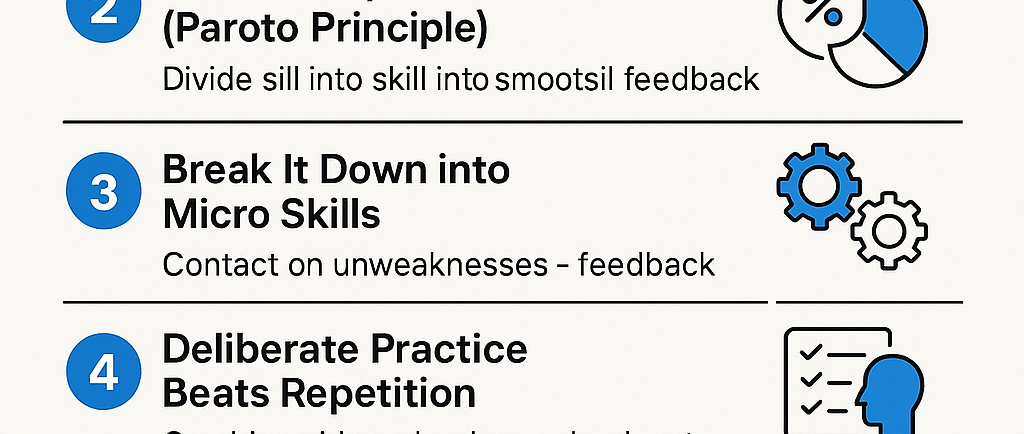How to Gain Expertise in Any Skill in Less Time


In today’s fast-paced world, the ability to learn and master skills quickly is more valuable than ever. Whether you want to excel in video editing, crack a competitive exam, or build a side hustle, becoming an expert doesn’t always have to take years. With the right approach and mindset, you can speed up the process and gain expertise in any skill efficiently.
1.Clarity is Power: Define the Skill Precisely
Start by defining exactly what you want to master. “I want to be good at graphic design” is vague. Instead, say, “I want to become proficient in using Canva to create YouTube thumbnails.” The more specific you are, the faster you can focus on learning what matters.
2.Use the 80/20 Rule (Pareto Principle)
According to the 80/20 rule, 80% of results come from 20% of the effort. Identify the core concepts or tools that drive most of the success in your chosen skill. If you’re learning video editing, focus first on cuts, transitions, and audio syncing—before diving into advanced effects.
3.Break It Down into Micro Skills
No skill is truly one skill—it’s a combination of many smaller skills. For example, public speaking involves voice control, content structuring, body language, and audience engagement. Divide your skill into 5–10 micro-skills and master them one at a time.
4.Deliberate Practice Beats Repetition
Practice doesn’t make perfect—deliberate practice does. This means focusing on your weaknesses, pushing your limits, and getting real feedback. Record yourself. Ask mentors. Analyze what didn’t work and improve. This loop of trial and correction accelerates expertise.
5.Use Learning Stacks (Layered Learning)
Combine multiple resources: YouTube tutorials, books, short courses, and live practice. Each adds a layer to your understanding. Example: Watch a short tutorial in the morning, apply it in the afternoon, and reflect on it at night.
6.Teach What You Learn
One of the fastest ways to master a skill is to explain it to someone else. Teaching forces your brain to organize and simplify what you’ve learned. Start a blog, create a short tutorial, or share tips on social media—even if you’re still learning.
7.Timebox and Focus Deeply
Set 90-minute distraction-free time blocks for focused practice. Deep work is where expertise grows. One hour of undistracted focus is more valuable than five hours of distracted multitasking.
8.Track Progress & Celebrate Micro-Wins
Keep a learning journal or checklist. Celebrate when you master a sub-skill. This boosts motivation and builds momentum. Progress fuels consistency—and consistency builds expertise.
Final Thoughts
You don’t need 10 years to become great at something. What you need is a clear goal, focused effort, and a system. Use smart strategies like the 80/20 rule, deliberate practice, and micro-skilling. In just weeks or months, you can gain practical expertise that others take years to build.
Remember: expertise isn’t a talent—it’s a system repeated until it becomes second nature.
